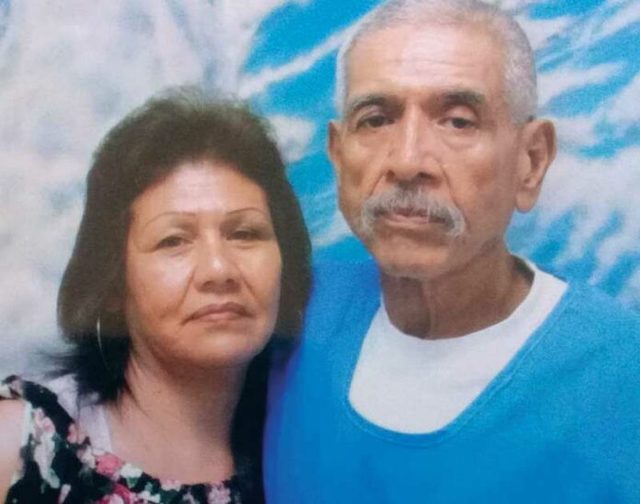Two Watsonville men serving long prison terms are hoping that a series of new state laws will allow them to receive reduced sentences, and get freedom sooner than originally expected.
Vincent Marquez is one of those men. Marquez is serving a decades-long prison sentence for a 2008 burglary conviction, and is hoping to see his sentence reduced this year.
That’s made possible by Senate Bill 483, also known as the Repeal Ineffective Sentencing Enhancements (RISE) Act. SB 483 strikes down a previous law that required a court that adds 3-years to sentences for every prior conviction for a controlled substance crime. It also strikes down Senate Bill 136, removing the one-year enhancement requirement for every prior prison or felony jail term served by the defendant.
Marquez, now 67, will return to Santa Cruz County Superior Court on Jan. 18 for a resentencing hearing.
Meanwhile, Martin Tapia Reyes, 48, is hoping that Assembly Bill 600—which took effect on Jan. 1— will help him get out of prison sooner than his 2034 parole date. AB 600 streamlines the sentencing process by allowing judges to recall sentences and eliminates the requirement that the district attorney or Attorney General concur with the resentencing court’s decision.
Reyes was given 35 years to life in 2010 for acting as a lookout in the burglary of a La Selva Beach surf shop while an accomplice stole $10. Reyes’ lengthy sentence was also a result of his gang involvement and prior convictions—10 misdemeanors and four felonies.
Both are hoping to that judges will reevaluate their sentences in consideration of these new laws.
Looking At The Cases
For Marquez, his Jan. 18 court date will mark the second time he attempts to use SB 483 in his case.
In September 2022, Santa Cruz County Superior Court Judge Paul Marigonda denied Marquez’s first petition. But Marquez took the case to an appellate court in Oakland, and in May 2023 a judge ruled that Marigonda erred, and that Marquez should be resentenced.
While Marquez was convicted in 2008 for a burglary, due to California’s harsh criminal justice stance—which adds years onto sentences for past crimes and prior prison time—he was handed a sentence totaling more than 40 years.
He is currently serving time based on just those enhancements.
He will soon be transferred to Santa Cruz County Jail, where on Jan. 18 a judge could strike some or all of those years from his sentence. He could return to his Watsonville home this year, where his wife and a community of supporters await.
Santa Cruz County public defender Michelle Lippert, who manages resentencing cases for the office, says that Marquez has a chance of success. Out of 25 petitions for sentence reductions, she says, just two have been denied.
Santa Cruz County Assistant District Attorney Lauren Alper says her office determines each application for resentencing on a case-by-case basis, a process that includes considering the inmate’s conduct while in prison and whether they participated in treatment and other programs.
Marquez’s denial in 2022 came after prosecutors pointed out he had not participated in enough programs while incarcerated.
“Our big issue with Mr. Marquez is that we didn’t find him very credible,” she says. “If he comes back and he’s shown some improvement and he took it to heart and he was participating, we would be open to reconsidering taking a couple of years off. But if we still see the same public safety risks, we would oppose it again.”
Alper, who oversees resentencing cases, says she also consults the attorneys who worked the cases and the victims’ families.
All of this with a single paralegal.
“It’s a pretty laborious process,” she says.
Meanwhile, Reyes’ friend Jessica Guzman says that he is eligible for resentencing based on the previous laws and on SB 600.
Guzman says that Reyes’ petition for resentencing—when it finds its way in front of a judge—will be strengthened by his conduct while in prison. He is a model prisoner who has completed numerous courses, certificates and programs, including learning auto body repair, she says. He is also an artist whose murals can be found throughout the prison, including the gym and the visitation room, Guzman says.
But the trouble is how to get his petition in front of a judge. Inmates cannot do it themselves, so it falls on the California Department of Corrections and Rehabilitation, a district attorney or the judges to make the recommendation, Lippert says.
Santa Cruz County Assistant District Attorney Jeff Rosell says that his office determines resentencing requests on a case-by-case basis that includes conduct while in prison.
Guzman acknowledges that Reyes has a checkered past, having lived the same lifestyle that still captures many of their friends.
“It sucks you in, that’s all you know,” she says. “But when he’s doing his art, that’s his escape.”
Like Marquez, Reyes is now serving time based solely on his gang enhancements. Ironically, he is seeing people convicted of murder released while he sits in prison for participating in a burglary, Guzman says.
Had he been sentenced solely for the crime, Reyes would have been released about 14 years ago, she adds.
“His life ended when he got sentenced,” Guzman says. “35 years for gang enhancements is severe. He’s watching people come and go for more serious crimes.”
New Laws, New Challenges
While the new resentencing changes are now the law of the land, they have become a thorn in the side for some judges. Some say it dilutes their discretion and unnecessarily complicates an already complex process.
The Second Appellate District Court of Appeal in Los Angeles on Dec. 13 allowed the resentencing of Frank Ruiz, a gang member who shot at but missed a fleeing victim in an October 2013 attack.
While the judges agreed to strike a 10-year firearms enhancement, thus reducing Ruiz’s original 28-year sentence, they also said that such cases come back to them several times, clogging up their busy dockets.
“Because of the Legislature’s constant tinkering with the already complex sentencing rules, the law has become an unsettled minefield,” the opinion reads.
The goal of the determinate sentence law, the judges add, is to “impose terms that are proportionate to the seriousness of the offense,” while allowing for “uniformity in the sentences of offenders committing the same offense under similar circumstances.”
The nine-page opinion ends with a question.
“Does anyone think that this goal is now being achieved?”















While some of these sentencing enhancements seem arbitrary to us, perhaps there was quite a bit of consideration into why they came up with them – to deter career criminals from continuing to commit crimes.
The saying “Dont do the crime if you cant do the time” is a saying for a reason.
Mr. Marquez is no longer a threat to anyone. at 67, he needs to be released so he can WORK, support himself, get back some dignity and have life with his family. and reveal what lessons he has learned from being in the PINTA so long. keeping him in prison is also a WASTE of taxpayer money to maintain him there.